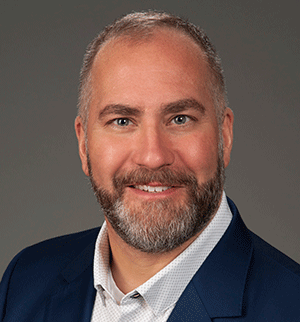ALJ backlog: Providers will have ‘fighting chance’ again

By Liz Beaulieu, Editor
Updated 12:05 PM CST, Fri February 18, 2022
 ATLANTA – The Office of Medicare Hearings and Appeals should be caught up on a years-long backlog of appeals at the administrative law judge (ALJ) level sometime this summer, predicts Wayne van Halem, president of the van Halem Group.
ATLANTA – The Office of Medicare Hearings and Appeals should be caught up on a years-long backlog of appeals at the administrative law judge (ALJ) level sometime this summer, predicts Wayne van Halem, president of the van Halem Group.
That means OMHA should be back to holding hearings at the ALJ level within 90 days as required by law, he says.
“The appeals process has to be timely,” he said. “If the appeals process is timely and Medicare has to hold off on recoupments until hearings are done, providers have a fighting chance to defend themselves before they have to refund any money. It’s less likely to put them out of business.”
By late 2021, OMHA had reportedly reduced the backlog at the ALJ level by 80%.
Without timely hearings, providers must often begin the recoupment process before their cases move through the ALJ level. Sometimes they agree to payment plans with “balloon payments” at the end, van Halem says.
“They didn’t anticipate that they’d have to wait five, six years for a hearing,” he said. “Then they get to the end of their payments, and they can’t afford them.”
At the height of the backlog, OMHA launched a number of programs, like the Settlement Conference Facilitation, meant to reduce the number of appeals moving up to the ALJ level. But these programs have been marred by too many restrictions and too few good-faith offers, van Halem says.
“Almost all of my clients have refused the settlements,” he said. “When they’re starting their offers at 25%, it doesn’t usually work.”
Providers that have the resources and grit to stick with it, like Josh Britten, are often vindicated. Britten, CEO of BritKare Home Medical in Amarillo, Texas, recently received an ALJ decision from a case he and van Halem, not to mention several attorneys, have been working on since 2014. The judge overturned 91% of denied claims, resulting in a refund of nearly $650,000.
“In our heart of hearts, we knew we hadn’t acted in bad faith,” Britten said. “The sad part is a lot of providers don’t fight this – they go out of business or sell their companies for cheaper than they should have.”
While timely hearings will be a huge benefit to providers, there is still the matter of why claims are getting denied in the first place, van Halem says.
“The contractors, particularly the UPICs, are unnecessarily aggressive,” he said. “They do these tedious audits and extrapolations that put companies through the ringer. I’ve defended payments for wheelchairs for quadriplegics. Why are we going through this? But they have to show CMS a return on investment.”
Tune back in next week for a Q&A with Britten on why it should be a right, not a privilege, to be able to work the Medicare appeals process.
Comments